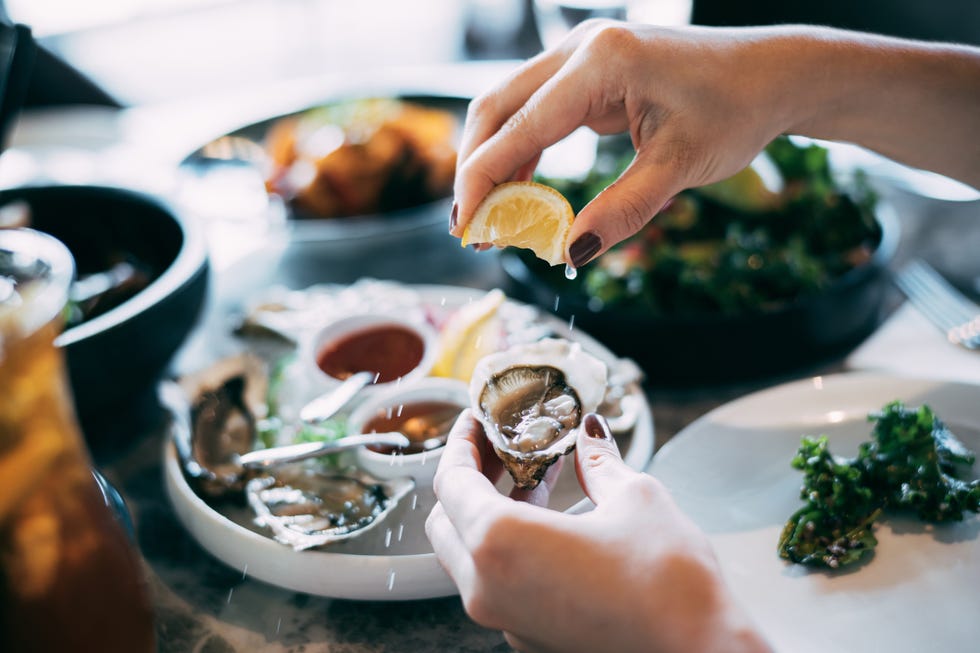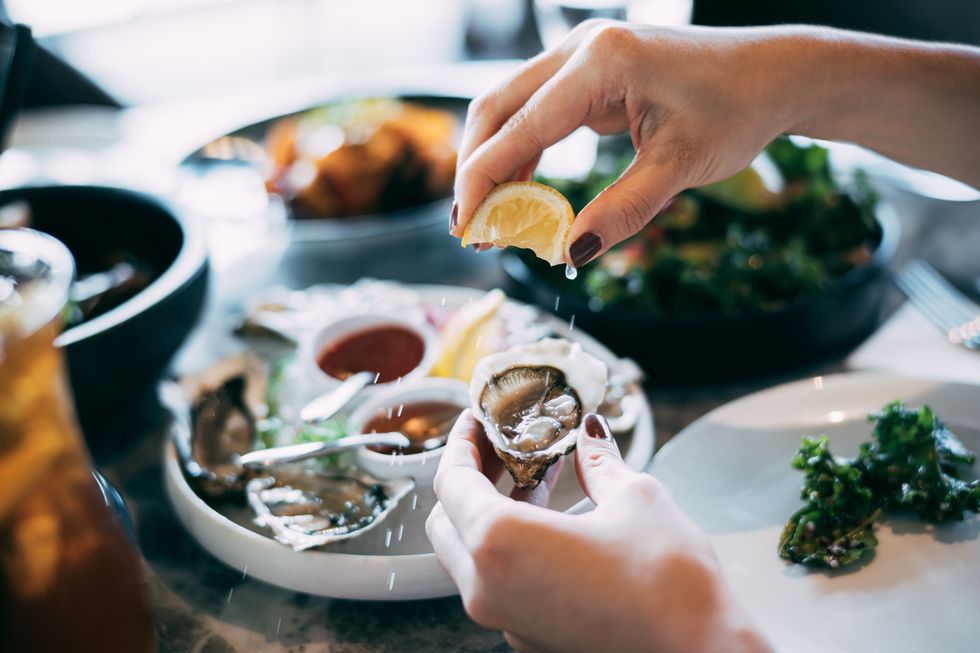
- The FDA and CDC have linked an outbreak of norovirus to raw oysters harvested in British Columbia and distributed in 13 known U.S. states.
- As of today, 103 illnesses have been reported in the U.S. due to the norovirus outbreak.
- The FDA urges those who think they may be in possession of infected oysters to dispose of them immediately, and to avoid consuming any raw oysters from the affected areas.
- In most cases, norovirus typically causes vomiting and diarrhea and is not life-threatening.
Though oysters have been known to have some great health benefits, like being one of the many foods high in zinc and boosting your sex drive, you’re still taking some risks when eating raw oysters or clams—and right now might not be the time to add them to your diet. The Food and Drug Administration (FDA) along with the Centers for Disease Control and Prevention (CDC), and other government partners are currently investigating an outbreak of norovirus across multiple states linked to raw oysters. As of today, 103 illnesses have been reported across 13 states.
The infected oysters were most likely harvested in the south and central parts of Baynes Sound, British Columbia, Canada, and distributed to be sold in restaurants and retailers in California, Colorado, Florida, Hawaii, Illinois, Massachusetts, Minnesota, New Jersey, Nevada, New York, Oregon, Texas, and Washington. The FDA adds that there is a possibility other states may have contaminated seafood as well.
The FDA and other regulatory organizations have traced the virus back to the British Columbia distributor and are working to remove the infected oysters from the food supply, recommending retailers to not serve raw oysters harvested from British Columbia, BC 14-8 and BC 14-15 with harvesting starting January 31, 2022. They encourage people to throw away or return any questionable product.
Oysters that have been infected with norovirus will likely look, smell, and taste normal, the FDA warns. They suggest avoiding oysters harvested from the previously mentioned locations and throwing any away if you have them in your home.
What is norovirus?
Norovirus is a very contagious virus, sometimes referred to as the stomach flu (though it’s unrelated to influenza) or the stomach bug. It can be transmitted through contaminated food or water, touching a contaminated surface and then your mouth, or through person-to-person contact, according to the CDC. The virus causes an inflammation of the stomach or intestines (called acute gastroenteritis). You can get norovirus at any age and multiple times in your life.
Norovirus symptoms
Most people develop symptoms in the first 12 to 48 hours of exposure and recover within one to three days. The most common symptoms when infected with norovirus include:
- Diarrhea
- Vomiting
- Nausea
- Stomach pain
- Body aches
- Fever
- Headaches
Because the symptoms cause a loss of fluids and may make it difficult to keep fluids down, those suffering from norovirus may also experience dehydration. Severe dehydration may lead to the need for IV fluids to be administered. Symptoms of dehydration include:
- Decrease in urination
- Dry mouth and throat
- Feeling dizzy when standing up
If you’re concerned you may be sick from an infected oyster, you should contact your healthcare provider. Though there’s no specific medication that can ease your symptoms right away, the CDC recommends drinking plenty of liquids to help replace the fluids you lost from vomiting and diarrhea, to avoid dehydration. You may choose to sip on a sports drink or other non-caffeinated and non-alcoholic beverage to help replenish electrolytes, and some find that following a BRAT diet as you slowly reintroduce solid foods into your diet can help.
Preventing norovirus
The best thing you can do to prevent norovirus is to practice proper hygiene. Be sure you wash your hands thoroughly with soap and water after using the bathroom, changing diapers, and before eating or handling food. Additionally, the CDC recommends carefully washing fruits and vegetables before preparing them and cooking shellfish well before eating. If you are worried a food you have may be contaminated, you should throw it away. Additionally, if you become ill, you should not prepare food for others and thoroughly clean and disinfect surfaces.
This content is created and maintained by a third party, and imported onto this page to help users provide their email addresses. You may be able to find more information about this and similar content at piano.io
